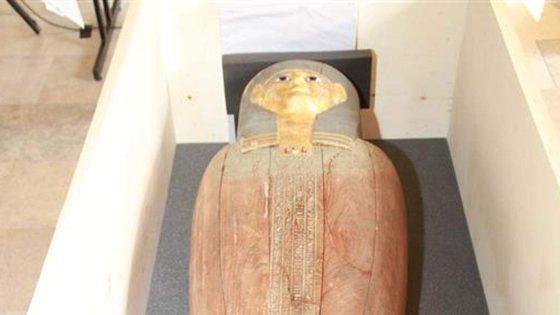Belgium has played a key role in the return of an ancient Egyptian sarcophagus, highlighting the country’s commitment to cultural heritage. On 2025-07-12 04:52:00, the richly decorated wooden coffin dating back over 2,000 years was officially handed back to Egypt after a decade-long legal process. This significant event underscores Belgium’s cooperation with international efforts to repatriate stolen artefacts.
- Egypt returns 2,000-year-old sarcophagus from Brussels
- Brussels police seized artifact in 2015
- Ten-year legal process repatriated cultural heritage
- Sarcoophagus depicts man linked to god Osiris
- Hieroglyphs reveal elite Egyptian named Padihorpachered
- Previous repatriations included statues and wooden beard
The sarcophagus, seized by Brussels authorities in 2015, was preserved in the Royal Museums of Art and History. Its return not only restores a piece of Egypt’s history but also raises important questions about the protection of cultural property worldwide. What does this mean for Belgium’s role in global heritage preservation? And how can such cooperation be strengthened?
With the sarcophagus now on its way back to Egypt, alongside a wooden beard fragment and other artefacts, this story offers a glimpse into the complexities of cultural restitution and international diplomacy.
Why does this return matter to Belgium and its citizens? It highlights the country’s dedication to justice and respect for international heritage laws. The case also demonstrates the challenges involved in identifying and returning ancient artefacts. Key points include:
- The sarcophagus belonged to Padihorpachered, an Egyptian nobleman from the 4th-3rd century BC.
- Brussels authorities seized the artefact in 2015 following a request from Egyptian officials.
- The legal process took ten years, emphasizing the complexity of cultural restitution cases.
- Belgium’s Royal Museums safeguarded the sarcophagus during this period, ensuring its preservation.
As Belgium continues to champion cultural justice, will more artefacts find their way home through diplomatic and legal channels? This case sets a precedent, urging Belgian institutions and authorities to remain vigilant and proactive in protecting the world’s shared history.
































